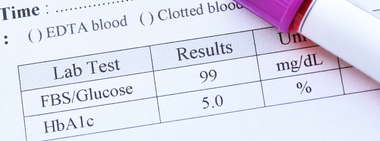Intermittent fasting. Should I try it?

That’s a question I’ve been getting a lot lately. Probably because there seems to be more and more discussion about this topic in general – in the news, on the web, and on bookstore shelves. And because a lot of people are trying to lose weight and have not been successful with other approaches.
What’s intermittent fasting anyway?
Intermittent fasting can mean different things to different people, but the basic idea is to withhold or markedly reduce calorie intake for defined intervals – usually for 16 to 24 hours at a time – on a recurring basis. The most common protocols include:
- The 16/8 Method: Involves skipping breakfast and restricting your daily eating period to 8 hours, for example from 1 pm to 9 pm. Then you "fast" for 16 hours in between.
- Eat-Stop-Eat: This involves fasting for 24 hours, once or twice a week, for example by not eating from dinner one day until dinner the next day.
- The 5:2 Diet: On two non-consecutive days of the week, only eat 500-600 calories. Eat normally the other 5 days.
Does it work?
Yes. And no.
The key is to eat normally the rest of the time. Meaning, this approach will not work for weight loss if you simply increase the amount of food you are eating when you’re not fasting. I’ve seen plenty of patients who eat once a day who are still significantly overweight – because they consume loads of calories at their one meal.
And this approach will not work for health if you are eating poorly between your fasting times. You may lose weight, but if you’re otherwise filling your body with processed junk, you will not be much better off.
Having said all that, there’s no question that if you skip some meals without compensating for the eliminated calories you will lose weight.
What's the upside?
What’s also interesting about intermittent fasting is the potential additional benefits of this eating strategy. In fact, studies have shown that fasting can affect many vital hormone and cellular processes in a positive way:
- Human Growth Hormone (HGH): The levels of growth hormone can go up significantly with fasting, increasing as much as 5-fold. This has benefits for fat loss and muscle gain, to name a few.
- Insulin: Insulin sensitivity improves and levels of insulin can drop dramatically. Impaired insulin sensitivity is a core issue in the development of diabetes, so improving sensitivity is a big deal. In addition, lower insulin levels lead to lower LDL (bad) cholesterol, higher HDL (good) cholesterol, and lower Triglyceride levels.
- Cellular repair: When fasted, your cells initiate cellular repair processes, including removal of old and dysfunctional proteins that build up inside cells.
- Gene expression: Fasting initiates positive changes in the function of genes related to longevity and protection against disease.
Sounds pretty good! And maybe this is why fasting is a ritualistic component of every major religion. Our ancestors may have figured out instinctively that fasting has positive effects on mind and body beyond weight and self-control.
What are the downsides?
Intermittent fasting is certainly not a panacea – and not appropriate for everyone. If you are on diabetes medications, if you are pregnant or lactating, if you’ve ever had an eating disorder, or if you have an advanced health condition of any type – this approach is probably not for you. If in doubt, always check with your healthcare provider before pursuing a fasting strategy.
And you may feel poorly when you fast. Headaches, lightheadedness and weakness are common. These symptoms tend to get better as people repeat their fasting protocol, but getting started can be rough.
Plus, understand that the data on physiologic effects of fasting is relatively new and evolving. And that just like with eggs (Eat eggs! Don’t eat eggs! Eat eggs!) the scientific community is likely going to go back and forth on whether intermittent fasting makes sense. This sudden rapture with intermittent fasting is likely to wane.
Truth is, there are many ways to lose weight. Some people respond to one method better than another. In the end, it’s always about taking in whole, nutrient dense foods in reasonable amounts. Which is why so many people report weight loss with Step One. We don’t ask you to fast, we don’t ask you to obsess over points. We just ask you to eat real food made from the highest quality ingredients in order to improve your health. The weight thing takes care of itself.
Source: Healthline

Tested & Proven Results.
- Cardiologist formulated
- Supported by over 500 publications
- Clinically-proven, in a double-blind randomized trial with Mayo Clinic and The University of Manitoba
80% of participants lowered their cholesterol in just 30 days. With just two servings per day, Step One Foods offers a proven-effective way to naturally lower LDL (bad) cholesterol.
Get heart health tips and articles like this, delivered right to your email.
New articles every week.
You may also like...

Insulin Resistance, Prediabetes and Type 2 Diabetes. Part 1: Defining the Problem

You don’t need to avoid foods with cholesterol…except for these



